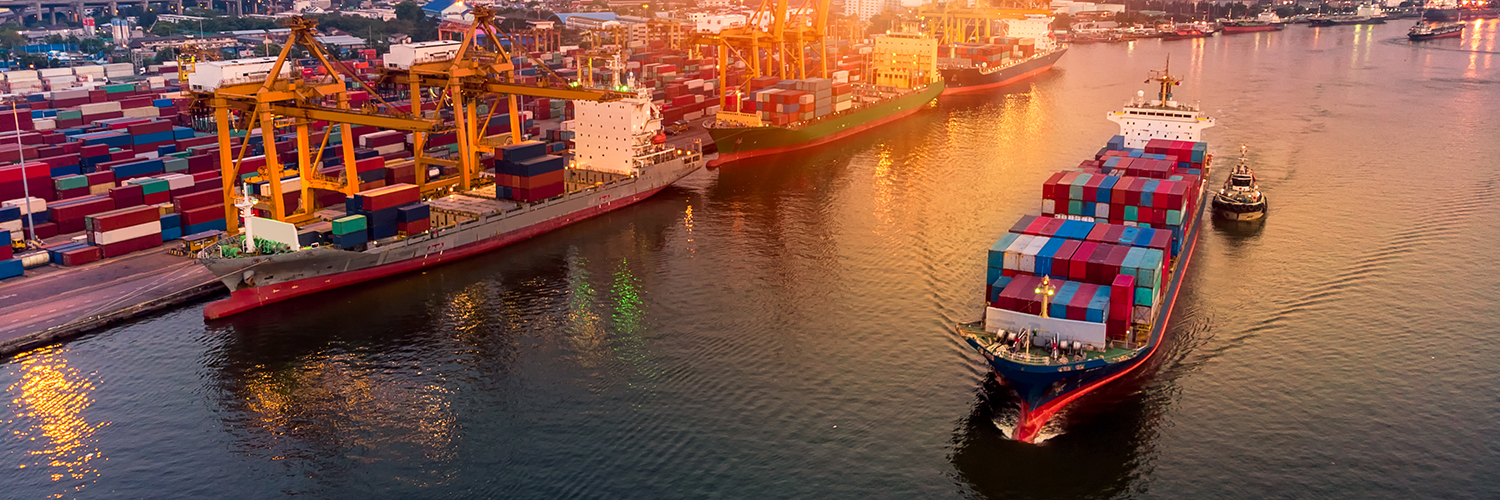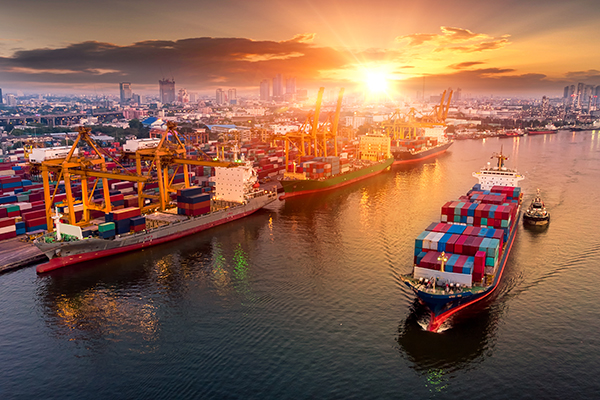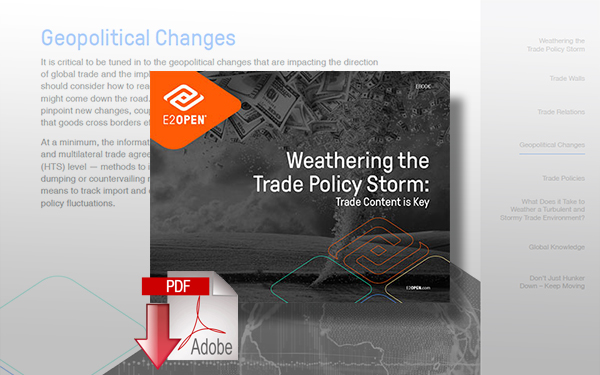The Connection Between Trade Compliance and Logistics

Recently, logistics companies that have failed to comply with the regulations that govern exports have experienced more and significant penalties.
Regulations That Govern Exports
Historically, governments have focused on the exporter of record when looking for sanction or embargo violations, including of the movement of sensitive dual-use products and technologies across borders.
However, all parties to an export transaction, including freight forwarders and carriers, are subject to the same rules, and as such must be aware of what is required of them in the transaction.
The scope of their due diligence must include destination controls, export licenses, and restricted party screening.
For freight forwarders, it is particularly challenging to comply with export license regulations since shipping companies tend not to gather the detailed information about the cargo they’re moving and partners involved in the transaction.
But this obstacle hasn’t slowed down the enforcement of any rulings. In addition to the potential for reputational damage, penalties for non-compliance can include substantial fines—millions of dollars in some instances— and criminal charges, including prison time.
Recently, logistics companies that have failed to comply with the regulations that govern exports have experienced more and significant penalties.
For example, in 2018 US officials brought forward a landmark case of an export compliance violation resulting in a fine against one of the world’s leading freight forwarders. US agencies fined FedEx $500,000 for inadequate commodity screening that resulted from flawed software.
The goods, which included aviation parts and electron microscope manufacturing items, are classified under a series of Export Control Classification Numbers (ECCNs) for anti-terrorism purposes. The delivery of such goods requires a license from the relevant authorities, which FedEx had not obtained.
This case is just the tip of the iceberg– other logistics companies that have been fined recently as well include:
- American Export Lines received a fine of $518,000 for transporting auto parts to Iran and Afghanistan
- Pilot Air Freight distributed restricted goods to a denied Pakistani customer and received a subsequent fine of $175,000 (this was a case in which the screening software had major flaws)
These latest examples clearly demonstrate how important a robust and dedicated solution for export management is for freight forwarders, NVOCC and similar operators in the transportation space.
Don’t risk your company reputation, margins, and import/export privileges; leverage technology and content solutions to stay out of hot water.
Related White Paper
Weathering the Trade Policy Storm
Supply chain storms aren’t going away, and as you seek solutions to shelter your company from uncertainty, grow into new regions, or try to maintain your existing base, you need to equip your supply chain team with the right gear. Download Now!
Article Topics
E2open News & Resources
E2open President and CEO Farlekas Provides Logistics Trends and Themes Overview E2open Transportation Management Solution to Simplify Your Logistics Supply Chain Disruptions and the Next Normal for Logistics in 2023 Outsourced Quality and Sustainable Manufacturing in a World of Disruption Mitigating Supply Chain Disruption in the Wake of Severe Weather and Disasters Uber Freight & E2open to Provide Real-time Transportation Rate and Capacity Options Tracking and Reducing Transportation Emissions More E2openLatest in Supply Chain
Let’s Spend Five Minutes Talking About ... Malaysia Baltimore Bridge Collapse: Impact on Freight Navigating TIm Cook Says Apple Plans to Increase Investments in Vietnam Amazon Logistics’ Growth Shakes Up Shipping Industry in 2023 Spotlight Startup: Cart.com is Reimagining Logistics Walmart and Swisslog Expand Partnership with New Texas Facility Nissan Channels Tesla With Its Latest Manufacturing Process More Supply Chain














